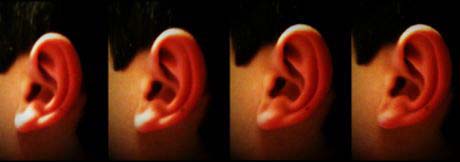How Could Talk Therapy EVER Possibly Help Me? #2

“Could talk therapy ever possibly help me?” As we started to examine in the last post, the evidence shows it most definitely can.

What’s more, research shows that the benefits of talk therapy go on and increase after the therapy is over.
Here’s why that’s true.
The Power of Talking with a Supportive Witness
There’s real value in speaking with others to gain clarity. Often what we feel or think can be indistinct and vague until we start to try and express it. Then, as we try and make clear to another what we mean, it becomes much more distinct and understandable. An emotion or an intuition or a vague idea becomes vclear and inwardly, we feel, “Yes — that’s it.” And if this happens while we’re speaking with someone highly supportive, we also feel that this sharing of what’s within us validates and affirms us. We not only understand and are more conscious of our inmost feelings and thoughts — we feel that they are valid, that another human “gets us”, and our feelings connect us with the broader human race. This leaves us freer to accept our feelings and ideas, to manage them, to take steps to alleviate them, or, to fulfil our desires.
In the particular focussed space created by psychodynamic therapy, also know as “talk therapy”, a rare type of conversation goes on. In it, the dialogue revolves around the inner live of the client. Things become clearer, more visible — more conscious — and easier to address.
Getting Past Repressed Emotions
If a person doesn’t talk about the emotionally powerful and difficult things in life, and represses them, or dissociates from them, they will make likely make their presence felt, often in destructive ways, in all kinds of situations in the person’s life. Contrary to what many think, pushing down and trying to forget one’s real feelings doesn’t work all that well, in the long run. If we refuse to give our feelings attention, at some later point, those emotions will force us to attend. This often happens in midlife transition, but that’s is far from the only place where this occurs. Strong emotions that are left unexamined and unchallenged produce powerful complexes that distort our relationships, and sap our energy and happiness. Talk therapy offers a safe container to process and explore this kind of emotional dynamite.

Research: Long-Term Psychodynamic Psychotherapy Rewires the Brain
An arresting fact about about talk therapy is that, at least in some situations, it can bring about changes that are observable by brain imaging in the way the brain functions. We tend to think that this is something only medication can do, but there is strong evidence of talk therapy bringing about such changes.
Here’s additional information on the studies referenced in the slides above:
- Anna Buchheim, Institute of Psychology, University of Innsbruck, Austria, et al. Changes in Prefrontal-Limbic Function in Major Depression after 15 Months of Long-Term Psychotherapy
- Yann Quide, Department of Psychiatry, University of Amsterdam, et al. Differences between effects of psychological versus pharmacological treatments … in anxiety disorder and major depressive disorder…
Symbolic and Archetypal Connections Made Through Talk Therapy

Talk therapy enables clients to process symbolic material such as comes up in dreams. Brain science and neurolinguistics have discovered how our brains innately use metaphors to comprehend things difficult to understand, both in waking and in dreaming. As U. Berkeley cognitive linguist George Lakoff puts it,
The metaphor system plays a generative role in dreaming…. Of course, upon waking, the dreamer may well not be aware of the meaning of the dream…. [yet] dreams are not just the weird and meaningless product of random neural firings, but… a natural way by which emotionally charged fears, desires and descriptions of difficulties in life are expressed.
Discussing dreams in the course of talk therapy with a skilled /a-midlife-transition often yields up new understanding of life situations, which may have great importance for the individual’s journey.
Talk therapy can make a profound difference.
Brian Collinson, Registered Psychotherapist & Jungian Analyst
[cta]
